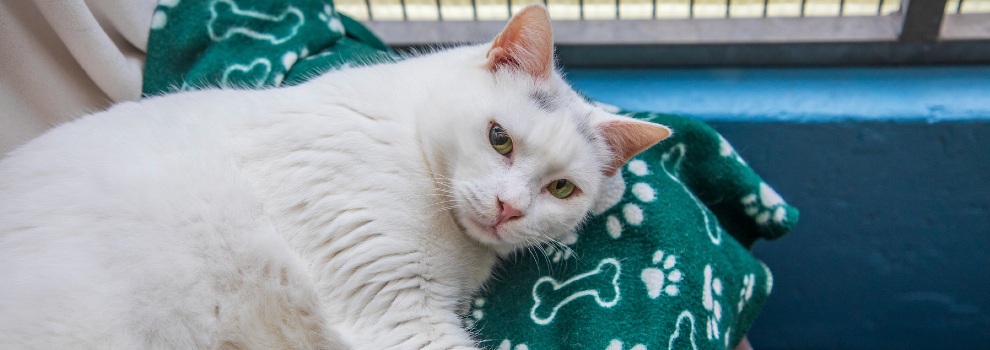- Find a Pet
- Advice and Welfare
- Ways to Give
- Get Involved
- What We Do
- Search
- My RSPCA
- Report a concern
- Gift in Wills
-
Colour modeVivid Calm
- Home
- Advice and welfare
- Pets
- Cats
- Health and welfare
- Poisoning
- Antifreeze
Antifreeze poisoning in cats
Antifreeze can be very dangerous to pets. Eating even a small amount can cause kidney failure and death, especially in cats
Here's more information on antifreeze poisoning in cats, including the symptoms to look out for and how to keep your pets safe

If you think your cat may have been poisoned by antifreeze
If you suspect your pet's come into contact with antifreeze or leaked water coolant get them to a vet immediately.
Signs of antifreeze poisoning can show 30 minutes after they've eaten it. It can be two or three days before you notice signs of kidney failure.
Symptoms to look out for are:
- Vomiting
- Seeming depressed/sleepy
- Appearing drunk and uncoordinated
- Seizures (fits)
-
Difficulty breathing
The sooner your pet receives veterinary treatment, the better their chances of survival. If left untreated, antifreeze poisoning can cause pain, suffering, distress and ultimately death.
Never 'watch and wait'
If you suspect your pet's been poisoned, contact a vet immediately.
Protecting your pets from antifreeze
Pets die every year from accidental poisonings from antifreeze spills and leaks, as well as from leaking water coolant from cars, but most of these deaths are avoidable. To keep your cat safe, check your car regularly to make sure it isn't leaking water coolant, and be careful with storing, using and disposing of antifreeze and water coolant.
Remember:
- Keep antifreeze in clearly labelled, robust, sealed containers, away from pets and their environment.
- Clean up spills immediately, no matter how small. Ensure your pets can't access the area until it's clean and safe.
- Always dispose of antifreeze and water coolant safely and responsibly - contact your local authority for advice
Intentional antifreeze poisonings of cats
We are deeply concerned and saddened about intentional antifreeze poisonings in cats across Britain.
Poisoning cats can constitute a criminal offence under the Animal Welfare Act 2006, the maximum penalty for anyone found guilty is up to 6 months imprisonment and/or a £20,000 fine.
Rock salt poisoning in cats
Antifreeze isn't the only winter hazard to cats. The rock salt used to grit roads can also be toxic to animals.
Rock salt is a mixture of salt (sodium chloride) and grit. Ingesting even a small amount of pure salt can be very dangerous, causing thirst, vomiting and lethargy. In severe cases there is a risk of convulsions and kidney damage.
Most cases involve animals who’ve walked through gritted snow and then licked or chewed it off their paws as they found it irritating. Thoroughly wipe your pet’s feet and tummy after time outside. If they could have rock salt on their feet or fur, wash the affected areas with a mild, pet-safe shampoo and warm water, and dry completely with a towel.
If you think any animal has ingested rock salt, call a vet immediately. Signs can be non-specific and a blood test will be required to check the blood sodium concentration. Never attempt to induce vomiting; only a vet should do this.
Get more animal welfare advice
Sign up to receive our emails today. Get more pet care advice, hints and tips on helping wildlife, our latest news, rehoming success stories and more directly to your inbox.



